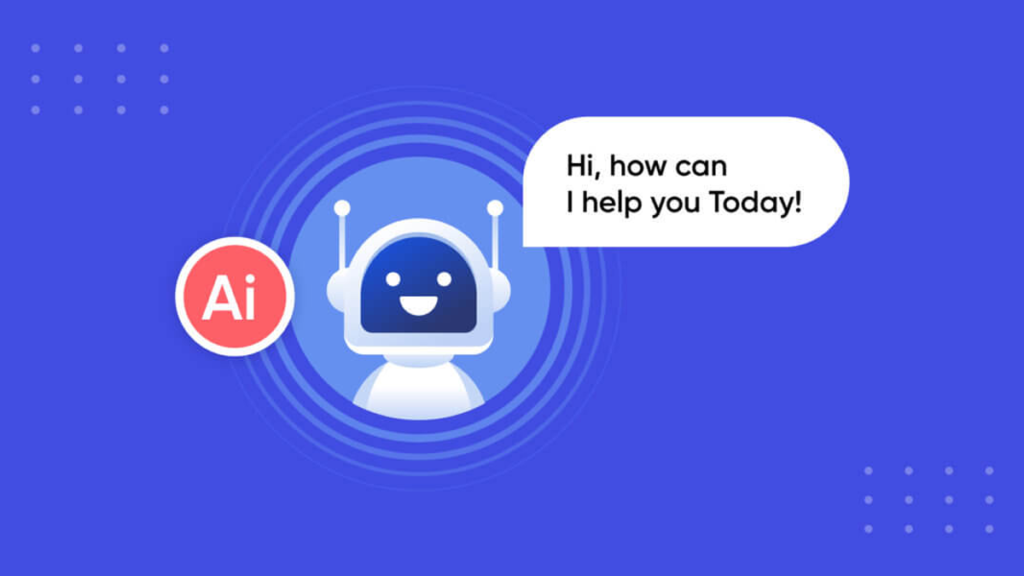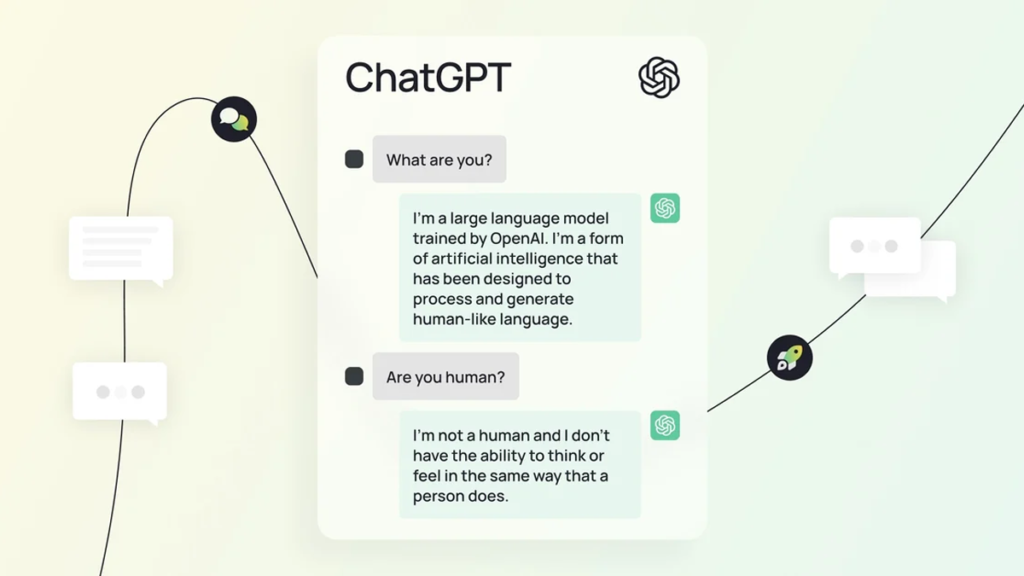
Introduction
In the ever-evolving world of business, startups face unique challenges. They must navigate limited resources, fierce competition, and the constant need to innovate. Artificial Intelligence (AI) emerges as a pivotal ally in this journey, offering solutions that enhance efficiency, customer engagement, product development, and strategic decision-making. This comprehensive guide explores the transformative power of AI in the startup ecosystem, providing detailed insights, practical examples, and an overview of essential AI tools.
1. Enhancing Operational Efficiency
Startups often operate with lean teams and tight budgets. AI can streamline operations, allowing these businesses to maximize their resources and focus on growth.
Automation of Routine Tasks
Routine tasks, such as data entry, scheduling, and customer inquiries, can consume significant time and resources. AI-powered tools like ChatGPT can automate these functions, enabling human employees to concentrate on strategic activities.
- Customer Support: AI chatbots can handle a wide range of customer service inquiries, from answering frequently asked questions to processing returns and refunds. For instance, startups like Drift use AI chatbots to provide instant customer support, reducing the need for a large customer service team.

- Administrative Tasks: Tools like x.ai can schedule meetings, manage calendars, and handle other administrative tasks, ensuring that human resources are utilized more efficiently. This is particularly useful for startups where every minute counts.
Predictive Maintenance and Monitoring
For startups involved in manufacturing or those that rely on physical infrastructure, predictive maintenance can be a game-changer. AI can monitor equipment performance in real-time, predict failures, and schedule maintenance proactively.
- Manufacturing Startups: Companies like Uptake use AI to analyze data from machinery, predicting when equipment is likely to fail and scheduling maintenance before a breakdown occurs. This approach minimizes downtime and maintenance costs, enhancing overall productivity.
- Tech Startups: Startups developing hardware products can use AI to monitor their equipment and ensure optimal performance. This is particularly relevant for businesses in the IoT space, where device reliability is crucial.
Optimizing Supply Chain Management
Efficient supply chain management is critical for startups, particularly those dealing with physical products. AI can help forecast demand, manage inventory, and optimize logistics.
- Demand Forecasting: AI algorithms can analyze historical sales data, market trends, and external factors to predict future demand accurately. Startups like Noodle.ai provide AI-driven supply chain solutions that help businesses anticipate demand fluctuations and adjust their inventory accordingly.
- Inventory Management: Tools like Llamasoft use AI to optimize inventory levels, ensuring that startups maintain the right amount of stock without over- or under-stocking. This reduces storage costs and minimizes the risk of stockouts.
- Logistics Optimization: AI can optimize delivery routes and schedules, reducing transportation costs and improving delivery times. For example, ClearMetal offers AI-powered logistics solutions that enhance visibility and efficiency in the supply chain.
2. Enhancing Customer Engagement and Experience
Customer engagement is the lifeblood of startups. AI can provide personalized, timely, and relevant interactions that enhance customer satisfaction and loyalty.
Personalized Marketing
In today’s competitive market, generic marketing messages are often ignored. AI can help startups create highly personalized marketing campaigns that resonate with individual customers.
- Email Marketing: Tools like Mailchimp’s Smart Recommendations use AI to analyze customer behavior and preferences, suggesting products or services that are likely to interest each recipient. This personalization increases the likelihood of conversions and customer retention.
- Social Media Advertising: AI platforms like Adext analyze user data to optimize ad targeting on social media. By understanding user behavior and preferences, these tools ensure that ads reach the right audience, maximizing ROI.
- Content Personalization: Startups like Crimtan use AI to tailor website content to individual visitors. By analyzing visitor behavior, AI can dynamically adjust content to better match their interests, improving engagement and conversion rates.
Advanced Customer Insights
Understanding customer behavior is essential for creating products and services that meet their needs. AI can analyze vast amounts of data to uncover deep insights into customer preferences and trends.
- Customer Segmentation: AI tools like Amplitude segment customers based on their behavior, allowing startups to tailor their marketing and product development efforts more effectively. This segmentation can reveal niche markets and untapped opportunities.
- Sentiment Analysis: By analyzing social media posts, reviews, and other user-generated content, AI can gauge customer sentiment. Startups like Brandwatch use AI for sentiment analysis, helping businesses understand public perception and adjust their strategies accordingly.
- Customer Journey Mapping: AI can track and analyze the customer journey across various touchpoints, identifying pain points and areas for improvement. Tools like Heap offer comprehensive journey mapping solutions that provide actionable insights.
Improved Customer Support
Providing exceptional customer support is crucial for startups aiming to build a loyal customer base. AI can enhance support services by offering instant, accurate, and round-the-clock assistance.
- AI Chatbots: Chatbots like those developed by Intercom can handle a wide range of customer queries, providing instant support and freeing up human agents to handle more complex issues. This ensures that customers receive timely assistance, improving their overall experience.
- Virtual Assistants: AI-powered virtual assistants can guide customers through complex processes, such as troubleshooting technical issues or navigating product features. For example, startups like Clinc offer conversational AI that provides detailed and personalized support.
- Multilingual Support: AI can provide support in multiple languages, breaking down language barriers and expanding a startup’s reach. Tools like IBM Watson Language Translator can translate customer inquiries and responses in real-time, ensuring effective communication.
3. Driving Product and Service Innovation
Innovation is at the heart of every successful startup. AI can accelerate product development and help create unique offerings that meet market demands.
AI-Powered Product Development
AI can assist in designing products that better meet customer needs and preferences, speeding up the development process and reducing costs.
- Design Assistance: Tools like Canva use AI to suggest design elements and layouts, making it easier for startups to create professional-looking graphics. This democratizes design, allowing even those without a design background to produce high-quality materials.

- Prototyping and Testing: AI can simulate how a product will perform in the real world, identifying potential issues before they arise. Startups like Autodesk use AI for generative design, creating optimized product prototypes based on specified constraints and goals.
- Feature Optimization: By analyzing user data, AI can identify which features are most popular and which need improvement. This allows startups to focus their development efforts on areas that will have the greatest impact. For example, Mixpanel provides AI-driven insights into feature usage and user behavior.
Enhancing R&D
Research and development are critical for startups, particularly those in technology and biotech sectors. AI can accelerate R&D by analyzing large datasets and uncovering new insights.
- Drug Discovery: Biotech startups like Insilico Medicine use AI to analyze biological data and identify potential drug candidates. This significantly speeds up the drug discovery process, reducing the time and cost associated with bringing new treatments to market.
- Material Science: AI can help discover new materials with desirable properties. Startups like Citrine Informatics use AI to analyze experimental data and predict the performance of new materials, accelerating the development of innovative products.
- Market Research: AI can analyze market trends and consumer preferences, providing valuable insights for product development. Tools like Crayon use AI to track competitor activity and market movements, helping startups stay ahead of industry trends.
Customized Solutions
AI enables startups to offer highly customized solutions that cater to the specific needs of individual clients, creating unique value propositions.
- Financial Services: Fintech startups like Kabbage use AI to analyze customer financial data and offer personalized loan products. This allows them to provide more competitive and tailored financial services compared to traditional banks.
- Healthcare: AI can personalize healthcare solutions based on patient data. Startups like HealthTap use AI to provide customized health advice and treatment plans, improving patient outcomes and satisfaction.
- E-commerce: AI-powered recommendation engines can suggest products based on individual user behavior and preferences. Amazon’s recommendation system, for example, is a prime illustration of how AI can drive sales by providing personalized shopping experiences.
4. Facilitating Strategic Decision-Making
Data-driven decision-making is critical for the success of startups. AI provides the analytical power necessary to make informed, strategic choices that drive growth and competitiveness.
Predictive Analytics
AI-driven predictive analytics can forecast market trends, customer behavior, and financial outcomes, providing startups with the foresight needed for effective planning.
- Market Trends: AI tools like Palantir can analyze vast amounts of data to predict future market trends, helping startups identify emerging opportunities and adjust their strategies accordingly. This foresight is invaluable in industries where trends can change rapidly.
- Customer Behavior: Predictive analytics can forecast customer behavior, such as purchasing patterns and churn risk. Startups like Retention.ai use AI to predict which customers are likely to churn, allowing businesses to take proactive measures to retain them.
- Financial Forecasting: AI can analyze financial data to predict future revenue, expenses, and cash flow. Tools like Planful use AI to provide financial forecasting and planning, helping startups manage their finances more effectively.
Business Intelligence
AI-powered business intelligence (BI) tools integrate data from various sources to provide comprehensive insights into a startup’s operations, performance, and market conditions.
- Data Integration: BI tools like Tableau and Looker can integrate data from multiple sources, providing a holistic view of the business. This enables startups to make more informed decisions based on complete and accurate information.
- Performance Metrics: AI can analyze key performance indicators (KPIs) to identify areas for improvement and track progress towards goals. For example, Domo offers AI-driven BI solutions that help startups monitor their performance and make data-driven decisions.
- Competitive Analysis: AI can analyze competitor data and market conditions, providing insights that help startups refine their strategies. Tools like SimilarWeb use AI to track competitor activity and market trends, giving startups a competitive edge.
Risk Management
Effective risk management is crucial for startups, especially those in high-risk industries. AI can help identify, assess, and mitigate risks, ensuring business continuity and resilience.
- Fraud Detection: AI can analyze transactions in real-time to detect fraudulent activity. Startups like Zest AI use machine learning algorithms to identify patterns of fraud, helping businesses protect themselves against financial losses.
- Cybersecurity: AI can enhance cybersecurity by detecting and responding to threats in real-time. Startups like Darktrace use AI to monitor network activity and identify potential security breaches, ensuring that businesses stay protected against cyber attacks.
- Regulatory Compliance: AI can help startups navigate complex regulatory environments by automating compliance processes and monitoring regulatory changes. Tools like ComplyAdvantage use AI to track regulatory developments and ensure that businesses remain compliant.
Artificial Intelligence is not merely a buzzword; it is a transformative tool that offers significant benefits to startups across various industries. By enhancing operational efficiency, improving customer engagement, driving innovation, and facilitating strategic decision-making, AI empowers startups to achieve sustainable growth and long-term success. Adopting AI tools such as ChatGPT, Perplexity, and others can provide startups with the competitive edge they need to thrive in today’s fast-paced business landscape. As AI technology continues to advance, its potential to revolutionize the startup ecosystem will only grow, making it an indispensable ally for entrepreneurs worldwide.

In a world where speed, efficiency, and personalization are paramount, AI offers startups the ability to innovate rapidly, understand their customers deeply, and make informed decisions that drive success. By integrating AI into their operations, startups can not only survive but thrive in an increasingly competitive and dynamic market.
Join Benoy and Ike on the Fearless Founders podcast, where professionalism meets fun, and every episode is a step towards realizing your entrepreneurial dreams. Tune in on YouTube and Spotify, and visit their website for access to premium services that elevate your business journey. This is your opportunity to learn, grow, and thrive in the dynamic world of entrepreneurship.
